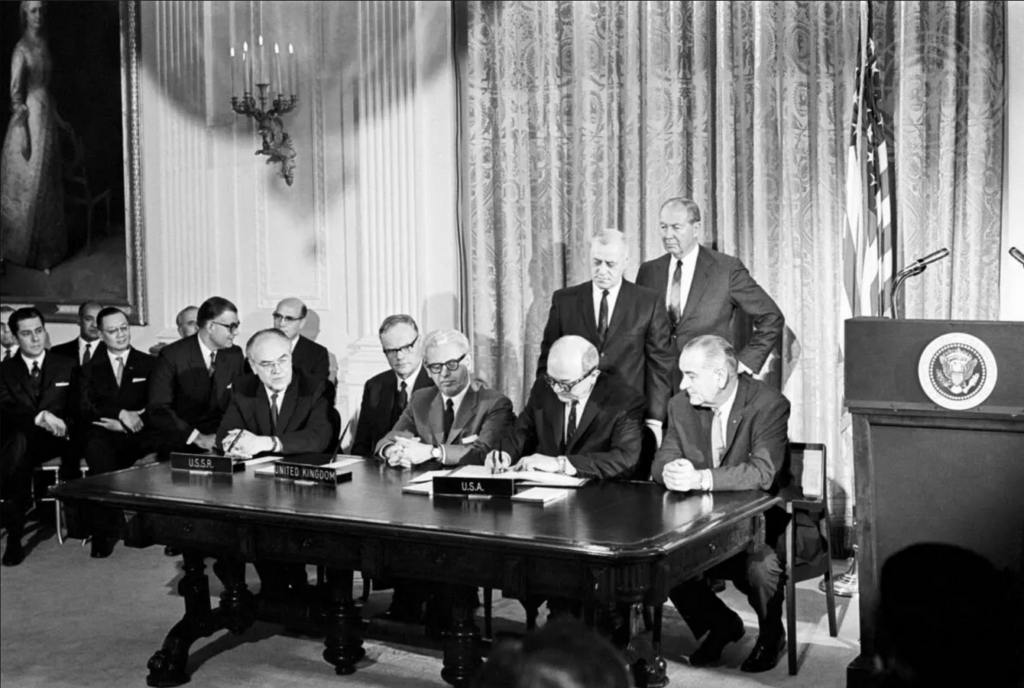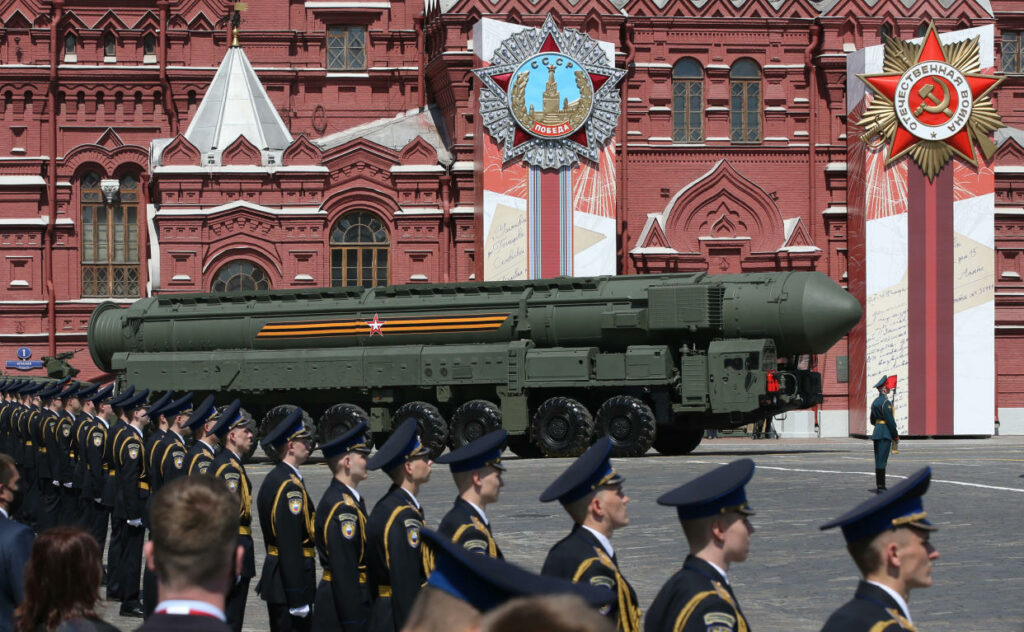In February 2024, there was renewed concern over the potential militarization of space, reminiscent of Cold War anxieties, following reports that Russia is developing a nuclear space weapon.
Mike Turner, the U.S. House Intelligence Committee chair from Ohio, publicly called on President Biden to release all information regarding Russia’s alleged space-based nuclear weapon development. In response, White House National Security Communications Advisor John F. Kirby reassured the public, stating, “Russia’s pursuit of this capability is concerning, yet it poses no immediate danger to anyone’s safety.”

Kirby clarified, “This isn’t about a weapon designed for attacks on Earth or causing physical harm here.” The exact nature of the Russian capability, whether it’s a space-deployed nuclear warhead or a nuclear-powered weapon intended to disable satellites, remains ambiguous.
This development has sparked debate over the Outer Space Treaty (OST), an international accord designed to govern space activities. Drafted in the era of intercontinental ballistic missile development, the OST aimed to prevent the weaponization of space. Initially signed by the United States, Soviet Union, and United Kingdom in 1967, the treaty now has 114 signatory countries.
Given the advancements in technology and space capabilities, experts and policymakers are questioning the adequacy of the OST and the potential need for a new treaty.
Sharon Squassoni, a professor at George Washington University, noted Russia’s current lack of credibility and how it complicates international cooperation, especially in light of the ongoing conflict with Ukraine. Despite Russia’s historical role in promoting space arms control, its alleged development of a nuclear space weapon presents an ironic twist. In 2008, Russia and China proposed a treaty to enhance the OST by banning all types of weapons in space, which failed to gain broad support, partly due to concerns over ground-based anti-satellite (ASAT) capabilities.
Ron Doel, a Florida State University history professor, pointed out the challenges in garnering international support for a new treaty, given the evolving nature of technological systems and previous arms control agreements’ complexities.

Violations of the OST, such as Russia’s 2021 anti-satellite test and threats against Western-owned private satellites, highlight the treaty’s limitations in addressing non-compliance. The absence of prescribed penalties and the potential for U.N. Security Council vetoes complicate enforcement.
The discussion of treaty fragility and enforcement is set against a backdrop of a burgeoning “lunar gold rush,” with nations racing to secure resources on the moon. This competition raises questions about the viability of existing space agreements and the need for updated international cooperation frameworks.
As NASA’s Bill Nelson declared a new “space race” with the Artemis Program aiming to return humans to the moon, the rapid advancement in space exploration and potential militarization underscores the need to revisit and possibly revise the framework governing outer space activities.






